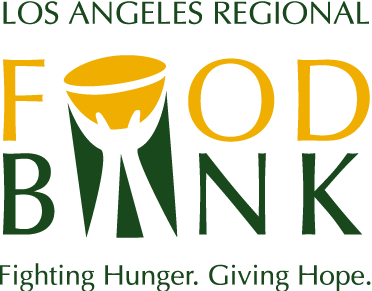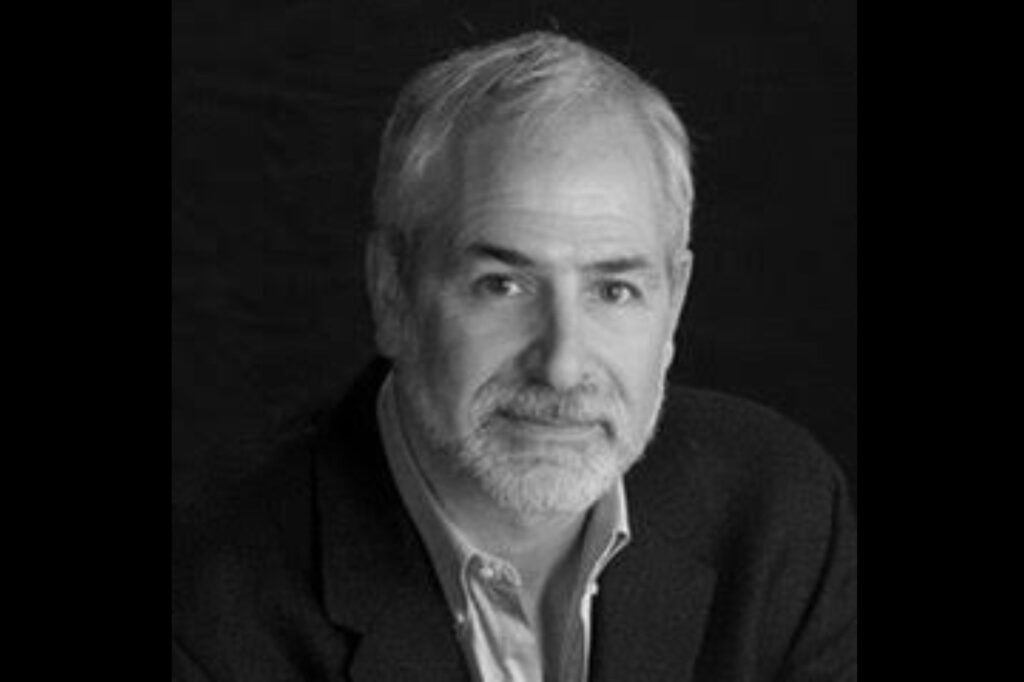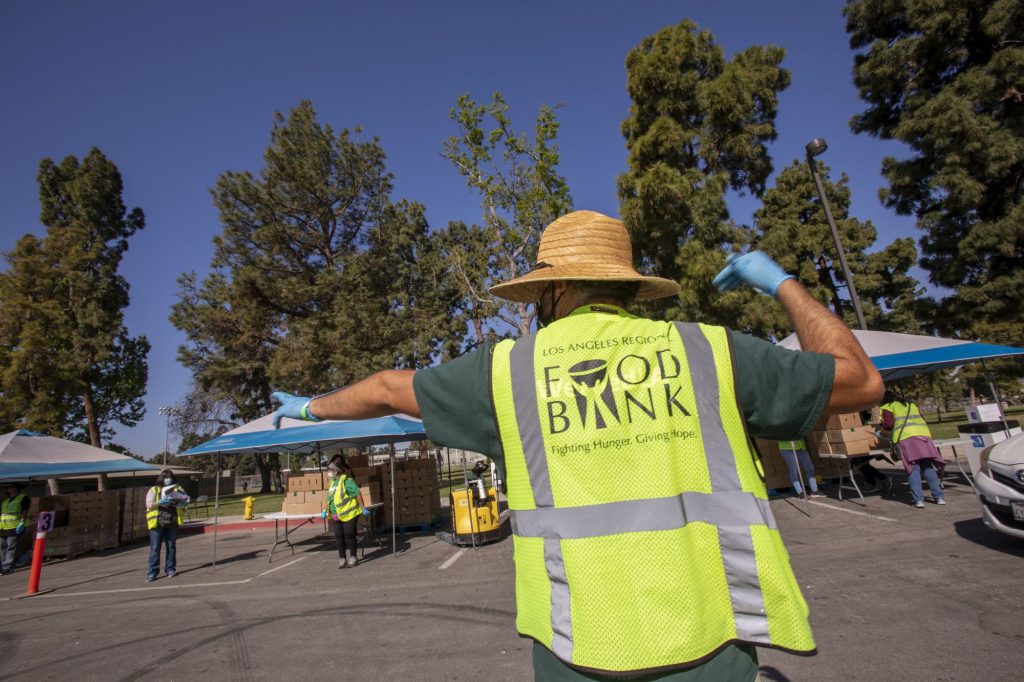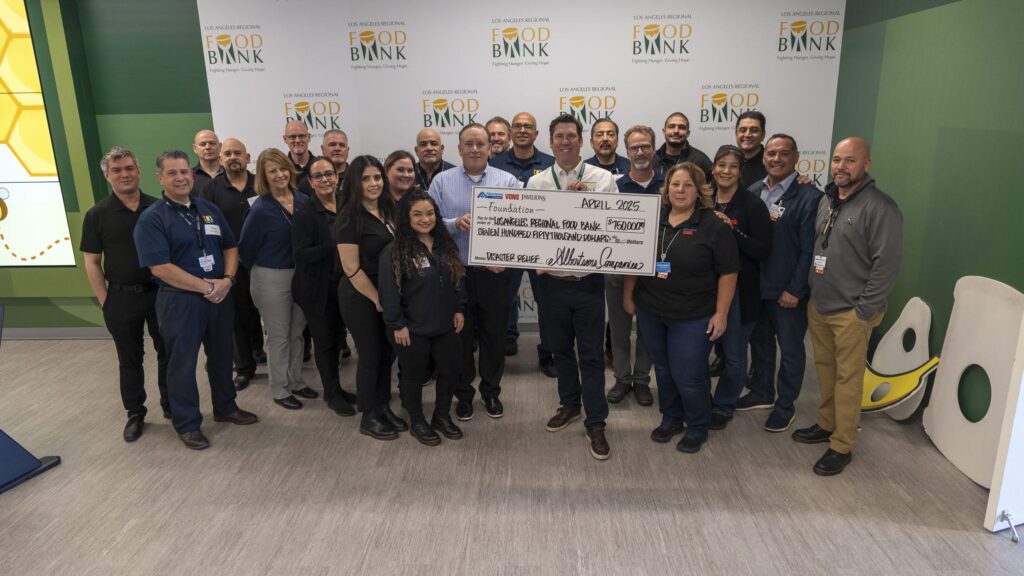The 2000’s at the Los Angeles Regional Food Bank, Including the Great Recession
The 2000’s at the Los Angeles Regional Food Bank, Including the Great Recession
As food volume continued to grow during the 1990’s, longtime Executive Director Doris Bloch realized that the Food Bank would need to expand in order to continue to meet the needs of communities throughout Los Angeles County. In late 1999 around the time she had announced her retirement set for June 2000, an opportunity suddenly arose as two adjacent buildings located at 1701 and 1727 E. 41st Place were put on the market to sell.
Doris Bloch and the Food Bank Board quickly sprung into action, negotiating the purchase of the two buildings, which added 41,000 square feet to the existing 55,000 sq.ft. main distribution center at 1734 East 41st Street in South Los Angeles. Thanks to a lead gift by veteran Board member Lawrence “Larry” Goodman Jr, a capital campaign was launched to pay for the acquisition of the 1701 and 1727 E. 41st Place buildings and the needed building improvements. The Food Bank’s foundation was set for the 2000’s, and the rate of growth continued to increase. Learn more about this move in our previous blog post >
Welcoming Michael Flood
In June 2000, after a nationwide search, the Food Bank’s Board selected Michael Flood as the new Executive Director, who had been working in food banking since 1990 in Northern California. Flood had big shoes to fill as a Los Angeles Times article lauded Doris Bloch as “ LA’s First Lady of Hunger Relief” and the California Community Foundation named her as one of the key nonprofit leaders in Los Angeles.
While retired, Bloch made sure that she was available to answer questions that Michael Flood had as he took over running the Food Bank. Among the first priorities was raising funds to reach the capital campaign goal for the newly acquired buildings, and the goal was achieved in 2001. With the additional space secured and the building improvements completed, Flood and his leadership team could turn their attention to expanding the work of the Food Bank.
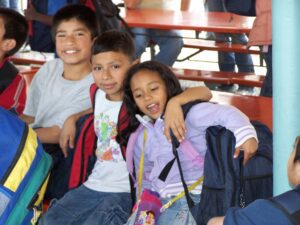 Over the next ten years, the Food Bank implemented a plethora of new programs to increase food acquisition and distribution, launch new nutrition and public policy initiatives, and improve the nutritional quality of the food the Food Bank acquires and distributes. Some of the programs launched during Flood’s tenure are Children’s Nutrition Programs including the BackPack, After-School Meals, and Summer Lunch and Breakfast programs; Senior Nutrition Programs including the Commodity Supplemental Food Program and Senior Expansion Program; Fresh Produce and Perishable Food Program; Mobile Food Pantry Program; Nutrition Education Program; and the Food Stamp (now called CalFresh) Outreach Program. Additionally, Flood oversaw the development of hunger education and food insecurity research, a new emphasis on public policy, and new fundraising initiatives to support all of the work.
Over the next ten years, the Food Bank implemented a plethora of new programs to increase food acquisition and distribution, launch new nutrition and public policy initiatives, and improve the nutritional quality of the food the Food Bank acquires and distributes. Some of the programs launched during Flood’s tenure are Children’s Nutrition Programs including the BackPack, After-School Meals, and Summer Lunch and Breakfast programs; Senior Nutrition Programs including the Commodity Supplemental Food Program and Senior Expansion Program; Fresh Produce and Perishable Food Program; Mobile Food Pantry Program; Nutrition Education Program; and the Food Stamp (now called CalFresh) Outreach Program. Additionally, Flood oversaw the development of hunger education and food insecurity research, a new emphasis on public policy, and new fundraising initiatives to support all of the work.
The Great Recession
The Great Recession was a severe global economic downturn that began in 2008 and lasted until around 2009-2010. During this time, the economy in LA County, like many other parts of the United States, was heavily impacted.
In LA County, the unemployment rate reached over 12% in 2010, up from 4.7% in 2006, which led to many people struggling to make ends meet, and food insecurity became a significant issue. Job losses, reduced wages, and increased food prices resulted in an increase in food insecurity by 30% during the Great Recession, affecting an estimated 1.6 million people.
Many people who lost their jobs or had their wages reduced during the Recession were forced to make difficult choices about how to allocate their limited resources, often having to choose between paying for housing, utilities, or food. As a result, many families in LA County were unable to afford nutritious food and relied on cheap, unhealthy options.
The Recession also had an impact on food assistance programs. The demand for food assistance increased significantly during this time, placing a strain on the existing resources of food banks and other charitable organizations. The federal government responded by increasing funding for programs such as SNAP (Supplemental Nutrition Assistance Program) and WIC (Women, Infants, and Children). However, many families still needed help accessing these resources due to long waiting lists and eligibility requirements.
The Los Angeles Regional Food Bank scaled up operations to meet the increased demand significantly with food distribution increasing by 43% in 2009. The Food Bank also worked to address the root causes of hunger by advocating for policies that would support low-income families and increase access to healthy food, partnering with other organizations to lobby for an increase in funding for nutrition assistance programs, such as SNAP and WIC, and to promote policies that would support the development of local food systems and healthy food retail in underserved communities.
The Great Recession also had a significant impact on the Food Bank and other nonprofit organizations as financial contributions decreased during a time when the demand for services was increasing. The Food Bank implemented hiring and salary freezes to adjust to the challenging times while ensuring the food continued to flow to families and people who needed it.
Related article: Food insecurity shows no sign of improvement >

